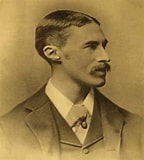
Found in a copy of The Private Library for July 1965 at Jot HQ archives is an account by an American professor of Journalism and American Studies called William White of his adventures in book collecting spanning three decades. The six writers in which he specialised as a collector were Housman, Hemingway, Marquand, Emily Dickinson and Nathaniel West, and if his account is to be believed he seems to have been a scholar-collector of rare persistence and dedication.
Not for him the Caxtons and Renaissance incunabula that occupied the energies of collectors like Paul Getty. White wasn’t interested in beating other wealthy men to acquire beautiful or ancient rarities. He deliberately chose writers who weren’t particularly fashionable and therefore expensive, though it could be argued that Hemingway and Dickinson might fit into this category. The remaining four writers, however– two English and two American– were comparatively inexpensive to collect. Though he doesn’t make it clear whether he collected the works of these writers because they were cheap to collect or because he was particularly interested in their work.
White begins his account by discussing his collection of Housman (above). We learn that he became interested in the poet and scholar soon after he died. His first purchase was the boxed edition of A Shropshire Lad and Last Poems dated 1929 from the private Alcuin Press in Chipping Campden, which as a graduate student in California he paid for in instalments. The price in the late 1930s was $17.50. Pretty soon White had contracted the collecting bug, which he justified by rightly arguing that there was only one way to do serious bibliographical research: ‘own the books’. Even allowing for White’s bibliomania, the description of his Housman library after thirty years of collecting is mind- blowing:
‘At the moment I have 155 editions, printings and impressions of A Shropshire Lad, thirty-eight of Last Poems, nine of More Poems, nineteen of Collected Poems, including both the English Lad (1896) and the American ( 1897) first edition, and the rare ( because of the nature of its publication) Selected Poems of A. E. Housman ( New York: Editions for the Armed Services, Inc, 1942) , which Mr Houston Martin of New York City gave me. This is, I believe, the largest collection anywhere of different printings of Housman’s poems. Also in the collection are various editions of his Manilius, Juvenal, Lucan, The Name and Nature of Poetry ( including one in Italian and a Mexican edition in Spanish), Introductory Lecture, Odes from the Greek Dramatists, off-prints and original appearances of Classical Review, Classical Quarterly, and Journal of Philology articles, Selected Prose, a horde of ephemera and Housmaniana one signature, but alas no letters or MSS’
This is classical bibliomania. And there’s more from White.
The first American edition of A Shropshire Lad ( New York: John Lane, The Bodley Head, 1897) is actually rarer than the English edition ( London: Kegan Paul, Trench, Trubner & Co Ltd, 1896), as it consists of 150 exported copies ( with a cancel title-page) of the 500 printed in England. My copy has the B spine label ( John Carter and John Sparrow, A. E. Housman: an Annotated Hand-list London: Rupert Hart-Davis, 1952), pp. 19 – 20); on the title page written in pencil is “1.25” for one dollar and a quarter, the original American price); the price I paid is written inside the front cover, “$125.00”, although I believe Mr Robert J. Barry of C.A.Stonhill, Inc., New Haven, Conn did not charge that much. ( I got it in 1941, when I was an impecunious instructor in English in Whitman College, Walla Walla, Washington, earning $1,300 a year…
There you have the true marks of a bibliographer and then some: the ‘ points’, the scholarly citations, the original price and some personal anecdotes, which rarely obtrude themselves into a bibliography. White seems to have found his real vocation. Who but a passionate book collector would pay nearly a tenth of his annual salary on a coveted title, though he did well. Today the first American edition, priced on Abebooks at £5,548 is over a grand more than the first English edition. Incidentally, shouldn’t Walla Walla be somewhere in Australia? [R.M.Healey]
